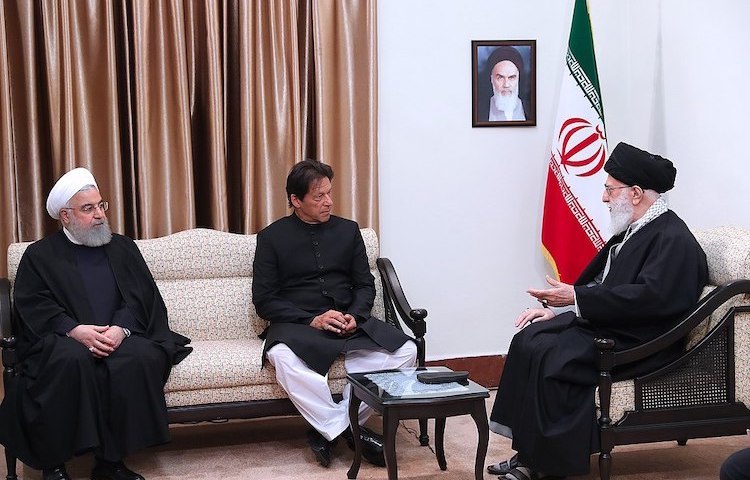By Sehar Naz Janani
KARACHI (IDN) – “Girls have the right to take important decisions of their lives, and only education can help them to stand on their feet and fight for themselves”, says Rabia, a Pakistani mother from rural Sindh.
Pakistani mothers are so dedicated to educating their daughters to ensure that they would be able to break through barriers and taboos, their mothers faced in this conservative society.
“We didn’t get an education and were suppressed by others at every point in our lives. We dream for our daughters to get an education so that they will not go through the same in their lives,” says Khadija, a mother from Punjab, who wasn’t able to get a formal education.
World Economic Forum’s 2018 Global Gender Gap placed Pakistan almost at the bottom of their chart at 148th among 149 countries.
Pakistan is a society of traditions, cultures and taboos. With a soaring population growth rate of 3.4 according to the 2017 World Bank Report, cultural conservation coupled with rising religious extremism is still hampering women’s progress in a country that elected a woman Prime Minister 30 years ago.
“A girl should not speak much, and she should always say yes to whatever is instructed to her,” said Jamal, a middle class Pakistani father from Karachi.
This is a very common saying inherited from the ancestors of Pakistanis.
In March 2019, Asma Aziz hailing from the city of Lahore posted a video on Twitter of her shaven head and torture from her husband upon refusing to dance in front of him and his friends. She said in the video that he used to beat me but this time he shaved my head too. She added that he undressed me in front of his servants and they held me while my husband shaved my head and burnt my hair. Further, she said that I went to police station, but they refused to file the complaint and asked for money instead.
This torture was highly condemned by the online media including influential celebrities of Pakistan.
“You are permitted to die but not to stand up for yourself. Marriage is like an ultimate bond, which a Pakistani girl has to go through no matter even if costs her life,” said Amna, a 24-year-old university graduate from Islamabad, Pakistan.
However, things might take a new turn as the Chief Justice Asif Saeed Khosa has told the Supreme Court in Islamabad earlier last month (June) according to Dunya News that the government is planning to set up 116 gender-based violence courts and also child courts in every district in Pakistan.
Prime Minister Imran Khan is believed to be a staunch supporter of women empowerment based on his mandate to have a Naya Pakistan (New Pakistan) but no concrete steps have been taken by his administration in this regard since elected to power in August 2018.
During the 19th Summit of Shanghai Cooperative Organization in Bishkek, Kyrgyzstan last month (June), Khan promised to strengthen the women forum and youth council and mandating them to promote gender mainstreaming, skill acquisition, and job mobility. However, he faces tremendous social barriers, especially changing attitudes within families.
“Whenever I talk about what I feel, my mother shuts me off as she thinks it is disrespect. She always tells me, what would your in-laws think about you and your upbringing?” said Sadaf, a 24-year-old female university graduate from Hyderabad, Pakistan. “She has unconsciously destroyed my confidence. Even though I am educated and independent.”
Many young women confess privately that inequality sustains within Pakistani culture by covering its face that is justified as adhering to “Islamic teachings”, “cultural norms” or “Pakistani traditions”. According to a Human Rights Watch report in 2017, almost 1,000 honor killings are being reported every year and 21 per cent of the females get married during their childhood. Nevertheless, there are an alarming 11.9 million women who are unregistered in Pakistan according to the National Database and Registration Authority reports during the 2018 elections.
“Our culture does not allow us to even openly participate in the celebrations of our loved ones. The girls, who get an education are regarded as the strong-headed and rebellious women,” says Hafsa, a young 18-year-old high school student from Northern Pakistan.
As women across Asia join the professional middle class in rapidly increasing numbers, while thousands of young Asian women travel on their own across Asia and even as far away as Europe and America, Pakistan society is still striving to decide if it should go against its taboos and educate the daughters.
Pakistan has a population of 197 million, out of which approximately 49 per cent are women. They would be doomed to view the four walls of their own houses daily, if attitudes of men – especially fathers – remain entrenched in the past.
“Daughters don’t listen to us anymore after getting education. They become disobedient and disrespectful to elders,” says Karam, a primary school teacher from Northern Pakistan. “I am deciding not to educate my younger daughters as they might stand tomorrow on my face to marry a guy of their own choice.”
The author is a Communication and Media Studies student at the University of Central Asia from Pakistan. This article is based on interviews she did for a social studies project.
*Note: Names and places of women interviewed have been changed to safeguard their privacy. [IDN-InDepthNews – 01 July 2019]
Photo: Pakistan PM Imran Khan –is believed to be a staunch supporter of women empowerment – met with Ali Khamenei and Hassan Rouhani in April 2019. CC BY 4.0
SUPPORT US in Speaking Out for People, Planet and Peace.
IDN is flagship agency of the International Press Syndicate.
facebook.com/IDN.GoingDeeper – twitter.com/InDepthNews
Send your comment: comment@indepthnews.colo.ba.be
Subscribe to IDN Newsletter: newsletter@indepthnews.colo.ba.be

